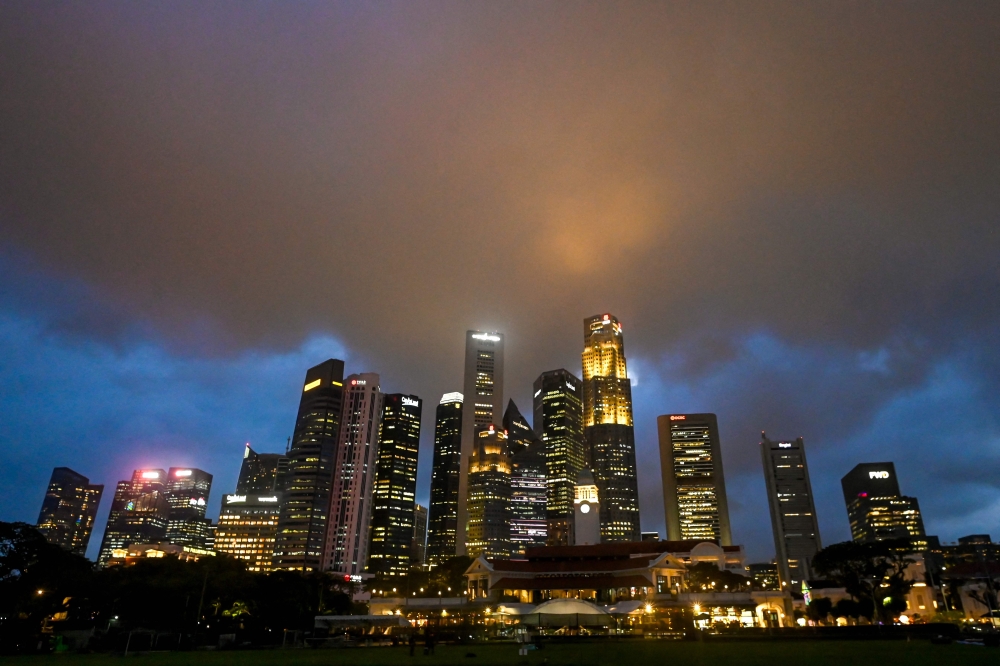SINGAPORE, April 17 — Singapore “cannot rule out” a recession this year because of the global uncertainty caused by US President Donald Trump’s tariffs, its trade minister said yesterday.
The city-state’s economy is a barometer for global trade because of its heavy dependence on world demand, but that order is now under threat after Trump imposed sweeping tariffs on dozens of countries.
The steepest rates have been paused for 90 days, but Trump has said no country is “off the hook”.
“Given potential downside risks, we cannot rule out the possibility of a recession this year,” Deputy Prime Minister and Trade Minister Gan Kim Yong said at a news conference.
On Monday, the trade ministry downgraded Singapore’s economic growth forecast this year to between zero and 2.0 per cent, from its previous forecast of 1.0-3.0 per cent.
The effects of the US tariffs worldwide “have caused significant uncertainty and downside risks in the global economy, and we must be prepared for more shocks and challenges ahead,” Gan said.
He was speaking at a news conference of a government task force formed to help the trade-dependent nation cope with the impact of the tariffs.
Although Trump imposed the baseline 10 per cent tariff on Singapore, the city-state is vulnerable to a global economic slowdown caused by the much higher levies tabled for dozens of other countries.
Gan said a trade war between the United States and China could “choke off” $600 billion in annual trade.
“Some companies in Singapore are already affected,” he said, adding that firms that have manufacturing operations in China or sell to manufacturers there are seeing cancelled or deferred orders.
‘Unstable and fragmented world’
At their news conference, the task force members said they had their first meeting yesterday and assessed the immediate effects of the US tariffs.
Task force members vowed that the government was ready to help, raising the possibility of tapping into the country’s massive reserves such as during the Covid-19 pandemic.
“If it is necessary for us to do so, we will provide support for companies, for our workers and for Singaporeans,” said task force member Chee Hong Tat, who is minister for transport and second minister for finance.
“And we are able to make this commitment because over the years we have planned our fiscal resources carefully, and we do have surpluses to allow us to be able to do this, including our past reserves.”
Singapore spent nearly S$100 billion (RM336 billion) during the pandemic, including financial assistance for businesses to stay afloat without laying off employees and helping workers acquire new skills.
The task force members said they had drawn up plans to help businesses and workers in the short- and medium-term, as well as long-term measures.
“We are facing the most serious challenge to the global rules-based economic order,” warned Gan.
“We must be prepared for a more protectionist, unstable and fragmented world ahead.”
Prime Minister Lawrence Wong has called elections for May 3, hoping to win a mandate that will help him deal with the global uncertainty. — AFP

